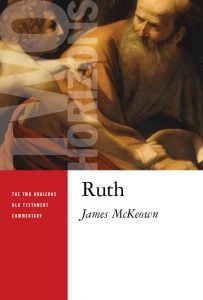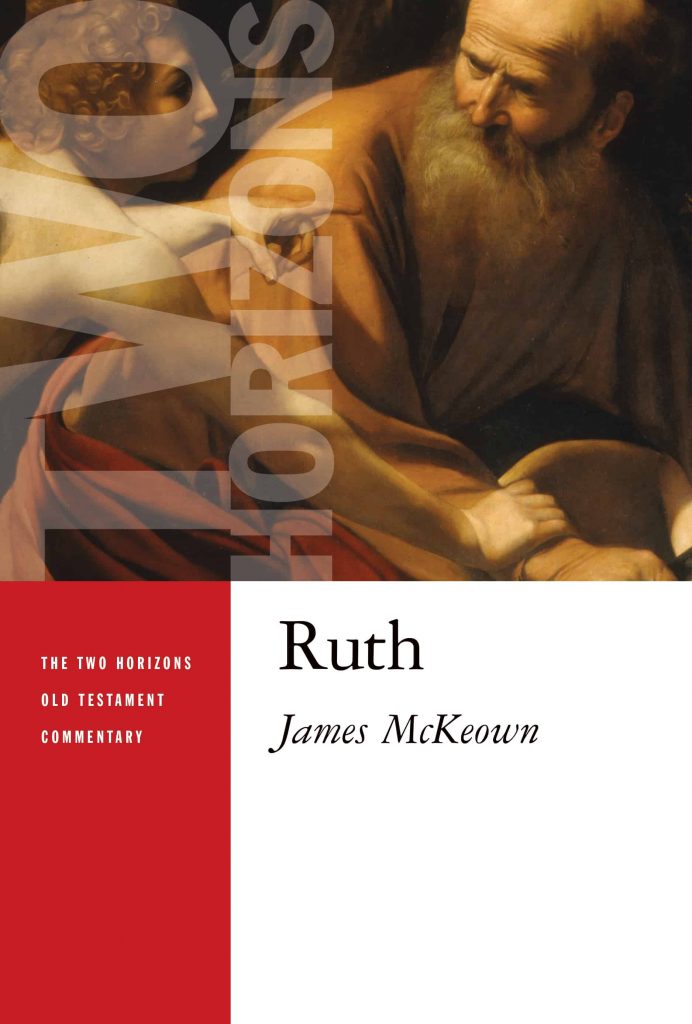⏱️ Estimated Reading Time: 5 min read
 I am a big fan of the book of Ruth. In fact, in 2014 I did a verse by verse study of Ruth which I found to be very enlightening and well worth the effort. Over the course of that study, I utilized a number of commentaries with some of those texts being quite good and while others were not that helpful. After reading James McKeown’s Ruth commentary, I wish I had his effort at my disposal as I was studying Ruth.
I am a big fan of the book of Ruth. In fact, in 2014 I did a verse by verse study of Ruth which I found to be very enlightening and well worth the effort. Over the course of that study, I utilized a number of commentaries with some of those texts being quite good and while others were not that helpful. After reading James McKeown’s Ruth commentary, I wish I had his effort at my disposal as I was studying Ruth.
Part of the Two Horizons Old Testament Commentary Series, McKeown’s contribution to the study of the book of Ruth is top notch. Many of the other commentaries I have read on Ruth spend an inordinate amount of time examining what seemingly every scholar in the history of scholarship has stated on a portion of Ruth while the text that should have been under examination and exegesis is far too often left untouched. McKeown thankfully avoids that approach, instead providing the reader with salient insight, sound exegesis, and most importantly, a deep dive into what God is revealing through Ruth and the characters involved in this beautiful story of the sovereignty of God in action.
McKeown aptly comments, “Although the book of Ruth is short, it has important theological implications. It is not written as a book of theology, but its narrative concerns a family history and its struggle in difficult times. The theological implications of the book relate to the faith experiences of its characters and how they understand God’s dealings with them.” By extension, through the book of Ruth, we can better begin to grasp the overall flow of salvation history as God works in the lives of Naomi, Ruth, and Boaz to bring about His divine plan. McKeown’s exegesis of the book of Ruth is rooted in helping the reader understand what God is doing and how He continues to work in the lives of His people even today.
After covering the necessary background information that must be part of a quality commentary such as matters related to the authorship, date of writing, genre, purpose and other related issues, McKeown begins his examination of the text. He divides his approach into two parts which formulate the focus of his efforts. Part one provides what one would normally expect in a commentary, namely an analysis of the text, important key points related to the text such as nuances of the language, historical issues that impact the text and its understanding, and how certain parts of the text connect to other portions of Scripture. When needed, McKeown does refer to the works of other scholars, but thankfully he does so on a limited basis and only when a portion of the text needs further explanation, for instance when a Hebrew idiom needs elaboration.
The second half of the book is spent looking at the theological implications of the text. McKeown provides a helpful introductory section to this portion of the commentary as well, enlightening the reader on how Ruth and Genesis relate to one another, how Ruth and Deuteronomy connect, the manner in which Ruth serves as a bridge to the book of Judges as well as providing insight into that period of Israel’s history, and perhaps most importantly, how the book of Ruth sets the stage for 1 Samuel and the entrance of King David onto the biblical stage.
McKeown also spends a good deal of time dealing with the subject of Levirite marriage, a concept likely not familiar to most believers unless they have spent a fair amount of time study the Mosaic Laws. Given that many believers, unfortunately, skip over or rush through that section of Scripture if they read it at all, McKeown’s comments on this subject are very helpful and serve as valuable insight into what took place regarding the marriage of Ruth by Boaz.
There is also excellent character studies in this half of the commentary as McKeown takes a deeper look into the main characters of the book of Ruth, namely Naomi, Ruth, and Boaz. The commentary concludes with some excellent discussion of the overarching issues and themes found throughout Ruth such as the aforementioned sovereignty of God, the theme of land, redemption, and interestingly, the theme of missiology, something I had honestly overlooked in my own studies of Ruth.
I highly recommend this commentary for all believers. Ruth is an often neglected but highly important text in Scripture. While only four chapters long, it is full of important concepts, principles, and themes that find themselves woven through Scripture. McKeown does a marvelous job of providing the reader with an accessible commentary that is scholarly yet very readable. Those who take the time to read the author’s effort with valuable comments and understanding of the text. This is a commentary that both seasoned theologians and brand new believers will find quite useful on the book of Ruth.
This commentary is available for purchase from Wm. B. Eerdmans Publishing Company by clicking here.
I received this book for free from Wm. B. Eerdmans Publishing Company for this review. I was not required to write a positive review. The opinions I have expressed are my own. I am disclosing this in accordance with the Federal Trade Commission’s 16 CFR, Part 255: “Guides Concerning the Use of Endorsements and Testimonials in Advertising.”




